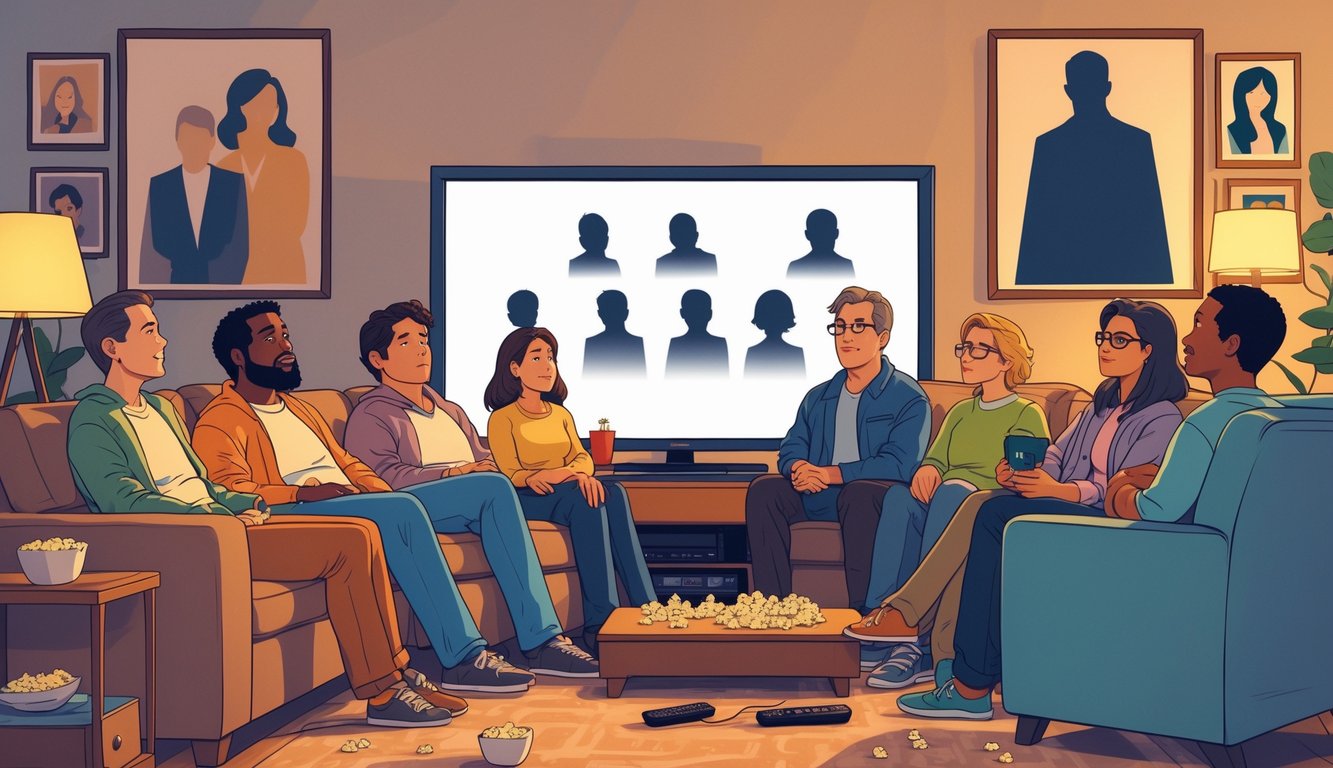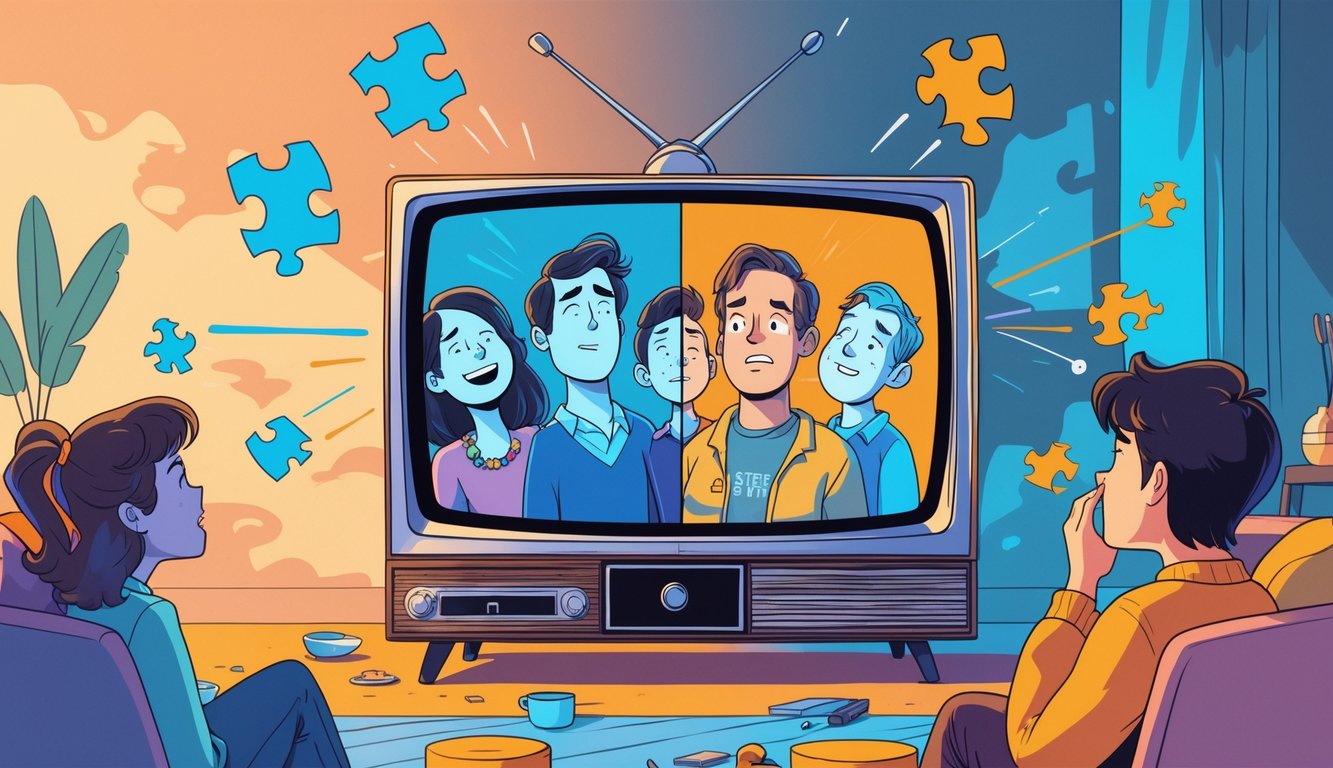
I still can’t believe I wasted twenty minutes on some random spin-off just because the finale of the main show left me feeling empty. Why did I ever think “Joey” could possibly fill the Friends-shaped hole in my life? I mean, sure, we all jumped into these things hoping for comfort—familiar faces, same old vibe—but what did we get? Plotlines that felt like reheated leftovers, awkward jokes, and, honestly, a weird sense of shame for even trying. I swear, somewhere out there, Nielsen ratings are just cackling at us. Spin-offs flop all the time, but networks keep tossing out new ones like maybe this time will be different. (It never is.)
Is there some secret TV executive playbook that says if a cop drama worked, just slap the same badge on a new desk and call it a win? Because, wow, even the most die-hard fans bail after three episodes, and the only thing left on Reddit is people arguing about which character’s shirt changed color mid-scene. Some of these shows honestly made me wonder if I hate myself. Like, why did I binge 10 TV spin-offs that completely missed the mark? Maybe the theme song slapped, but you had to mute half the dialogue to survive.
And here’s the real kicker: I kept watching these disasters out of loyalty. Or, worse, because I was terrified of missing out and getting spoiled online. No one warned me I’d have to fake-laugh at bad jokes just to keep up with group chats. If networks actually cared about our sanity—or at least checked the bottom half of IMDb—maybe we’d have fewer Thursday night regrets.
Understanding TV Franchise Spin-Offs

Why does it feel like every time I blink, a new “expansion” of some ancient TV universe pops up? Like, are we really out of ideas, or is nostalgia just that addictive? Critics love to pick these apart—always comparing, never impressed. It’s all a mess of recycled stories, desperate cash grabs, and endless ratings chases.
Defining Spin-Offs in Television History
I’ve lost track of how many times I’ve seen a “brand new” show that’s just a sidekick getting their own apartment. Joey from Friends? Yeah, that happened. Nobody brings it up unless they’re making a list of TV’s biggest mistakes. Spin-offs aren’t some modern trend, either—“Maude” came from “All in the Family,” and “The Andy Griffith Show” was a spin-off too, if you can believe it.
What’s wild is how much these shows lean on the original’s reputation. The pressure’s brutal. If you’re a spin-off, you’re not allowed to just be okay—you have to be the next Cheers, or else. I mean, TV historian Melissa Sartore basically says networks pile on sequels and spin-offs just to keep us hooked, even if it backfires. She’s got a whole breakdown of franchises with the most spin-offs, and it’s honestly kind of depressing.
Why Networks Create Spin-Offs
Execs want easy wins. Give them a character who already sells t-shirts and suddenly your show’s greenlit. I’ve seen it happen—anything with a built-in audience gets a free pass. Look at “Better Call Saul.” It’s thriving because, well, people already cared about Saul Goodman.
It’s all about money. Familiar faces mean guaranteed viewers, more ad dollars, and a reason to recycle old sets. The logic is so obvious it’s almost insulting. And once they start, they never stop. One exec literally told me, “It’s way harder to sell something new. Nostalgia always wins.” I mean, is that cynical, or just honest?
Evaluating the Legacy of Spin-Offs
Nobody ever admits they regret watching these until way after the hype’s dead. Then suddenly all you hear is, “How did that get renewed?” Fans complain online, wish they could unsee bonus seasons nobody wanted. The awkward legacy sticks to both the big hits and the flops (Joey, again—sorry, dude).
When a sidekick becomes the lead, all the cracks show up. Academic studies say even the good spin-offs can’t escape the original’s shadow. They get judged harder, age faster. Spin-offs just set themselves up for comparison—nobody’s playing fair. Sometimes all you remember is how much less you enjoyed it than the original. I get actual emails from people wishing they’d skipped certain shows. Not every franchise extension is worth the nostalgia trip.
Popular Spin-Offs That Missed the Mark
I keep thinking about these spin-offs as warnings—don’t let the promise of “just one more season” trick you. Old franchises aren’t safe from bad ideas, missed jokes, or pointless drama, and yeah, I still watch the reruns. Why? Who knows. Habit, maybe.
Joanie Loves Chachi’s Struggle with Legacy
Let’s not sugarcoat it: Joanie Loves Chachi felt like watching two people stuck in a never-ending audition. Erin Moran and Scott Baio left Happy Days, and suddenly, we’re supposed to care about their rock band in 1982 Chicago? I mean, did anyone ask for this? The ratings tanked after the first episode—Nielsen numbers don’t lie. The scripts barely let them fight, let alone make us care. Where was Fonzie? Where were the actual laughs? And why did every scene feel like it was filmed in a closet?
Even the biggest fans gave up—not because they hated Joanie or Chachi, but because the magic was back at Arnold’s, not in some fake nightclub. Seriously, spin-offs that missed the mark always include this one. There’s a reason.



